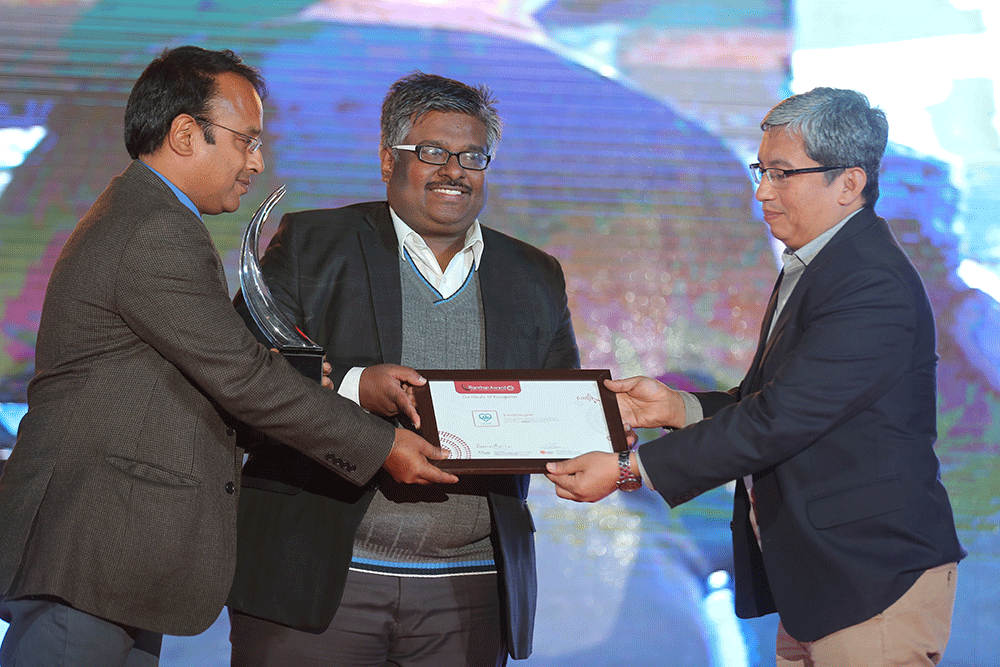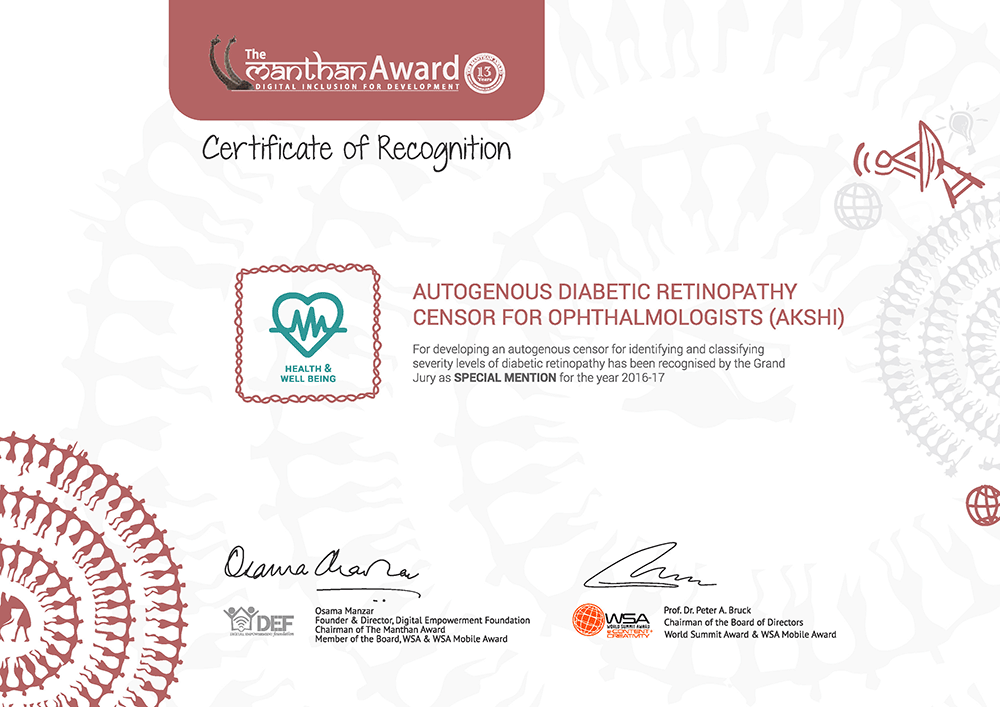Health & Well Being, Winners 2016
| medical care | sport | lifestyle
Health & Well Being, Winners 2016
| medical care | sport | lifestyle

1. e-Hospital@NIC
ORGANISATION: National Informatics Centre, Tripura
URL: http://ehospital.gov.in/ehospital/ COUNTRY: India LANGUAGE: English
EMAIL: chayan@gov.in
e-Hospital: Adoption of ICT tools and healthcare standards by hospitals
e-Hospital@NIC, an open source software-based health management information system, is an initiative of the National Informatics Centre, a premiere science & technology organisation of the central Ministry of Electronics & Information Technology.
First introduced at the GBP Teaching Hospital in Agartala (Tripura), the initiative has since then been replicated at more than 50 small to large-size government hospitals in Tripura, Madhya Pradesh, Kerala, Karnataka and Meghalaya. Several other states, too, have expressed willingness to rollout the initiative at large scale in their respective states.
The initiative has been funded, steered and encourgaed under the Digital India plan. Under the same initiative, the ministry offers cloud ready e-Hospital@NIC Suite free-of cost to government hospitals. Roll-out of e-Hospital@NIC has already achieved the distinction of exemplary re-use/replication in various types and sizes of hospitals, starting from a 200-bed hospital in Shillong to much larger super specialty hospitals like NIMHANS in Bengaluru or AIIMS in New Delhi.
The application conforms to HL7 framework and come integrated with SNOMED CT vocabulary for managing healthcare service delivery in public hospitals. The productized and customised solution — keeping in mind that each hospital is unique in terms fo its requirements and priorities — is then made available to hospitals as Software as a Services (SaaS) for accelerated adoption of ICT tools and healthcare standards by hospitals at large.

2. Essential Drug Stock Alert Tracker in Provincial Department of Health Services Western Province, Sri Lanka
ORGANISATION: Provincial Department of Health Services – Western Province
URL: http://healthdept.wp.gov.lk/PDHIS/ COUNTRY: SriLanka LANGUAGE: English
EMAIL: lasantha13@gmail.com
Enabling Effective Mobilisation of the Available Drugs
Lack of pharmacy supplies in government health institutions, especially in districts, divisional and rural hospitals, is a major complaint area for the general public in South Asia, and Sri Lanka is no different. Health care institutions under the Provincial Health Ministry of Sri Lanka receive pharmacy items from the Regional Medical Supplies Division (RMSD). Shortage of pharmacy items or their maldistribution can be attributed to poor communication between RMSD and health institutions. At present, real-time drug stock information is not available for various institutions, resulting in the inability to replenish stocks in a timely manner. It was in this scenario that the Essential Drug Stock Tracker was created.
The objective of this system is to create a method to alert the health institutional heads and regional/provincial administrators about the essential drugs’ status, enabling effective mobilisation of the available drugs. The Web-based system is designed with a simple user friendly data entry format and colour-coded user dashboard system to help users easily visualises the available stock in green (stock is satisfactory), yellow (stock is below the reorder level) and red (stock is unavailable).
Early results of this system have been very encouraging. At the commencement of the system in Colombo district, 16.24 per cent items were at zero stock level and only 55.56 per cent items were at satisfactory stock level. By June 2016, zero stock level had reduced to 1.28 per cent and satisfactory stocks level had increased up to 86.32 per cent. This system was then extended to Gampaha and Kalutara districts. In Gampaha district, too, a fall of zero stock level by 10.71 per cent and rise in satisfactory stock level by 17.23 per cent was seen in June 2016. The zero stock level in Kalutara district, meanwhile, showed a fall of 23.06 per cent, the highest reduction compared to the other districts.
Special Mentions

Autogenous Diabetic Retinopathy Censor for Ophthalmologists – AKSHI
ORGANISATION:: University of Colombo School of Computing
URL: http://ucsc.cmb.ac.lk/ COUNTRY: Sri Lanka LANGUAGE: English
EMAIL: wijesingheasirisuranga@gmail.com
An Algorithm to detect Diabetic Retinopathy
Diabetic retinopathy is a rapidly growing eye disease around the world that is one of the most common causes of blindness among diabetic patients.
Information on retinal pathological mutation can be recognised using ocular fundus images (capturing a photograph of the back of the eye). However, retinal anomaly identification is one of most challenging interrogations for retinal consultants or ophthalmologists. Further, abnormalities such as micro aneurysms, hemorrhages, exudates, fragile and abnormal vessels and their symptoms raise the chances of visual impairments and blindness. Hence, a system autogenous censor called AKSHI was developed to assess abnormal vessels in human retina, and identify and classify severity levels of diabetic retinopathy.
Early detection of diabetic retinopathy helps ophthalmologists to advise proper treatment to save the vision of the patient before it’s too late. This system, thus, classifies data based on statistical texture information, which is extracted from the surface on segmented images through the Artificial Neural Network (ANN).
AKSHI contains a set of innovative and novel algorithms such as weak (tiny) vessels reconstruction algorithm to accurately capture the entire retinal vascular network; untwisted vessels detection algorithm (lengthy vessel extraction) to detect abnormal vessel regions; vascular network localising and removing process to eliminate the erroneous factors of retinal micro aneurisms segmentation; and optic-disc localising and removing process to eliminate the erroneous factors of retinal exudates segmentation, measuring vessel tortuosity factors to identify abnormality growth of vessels.